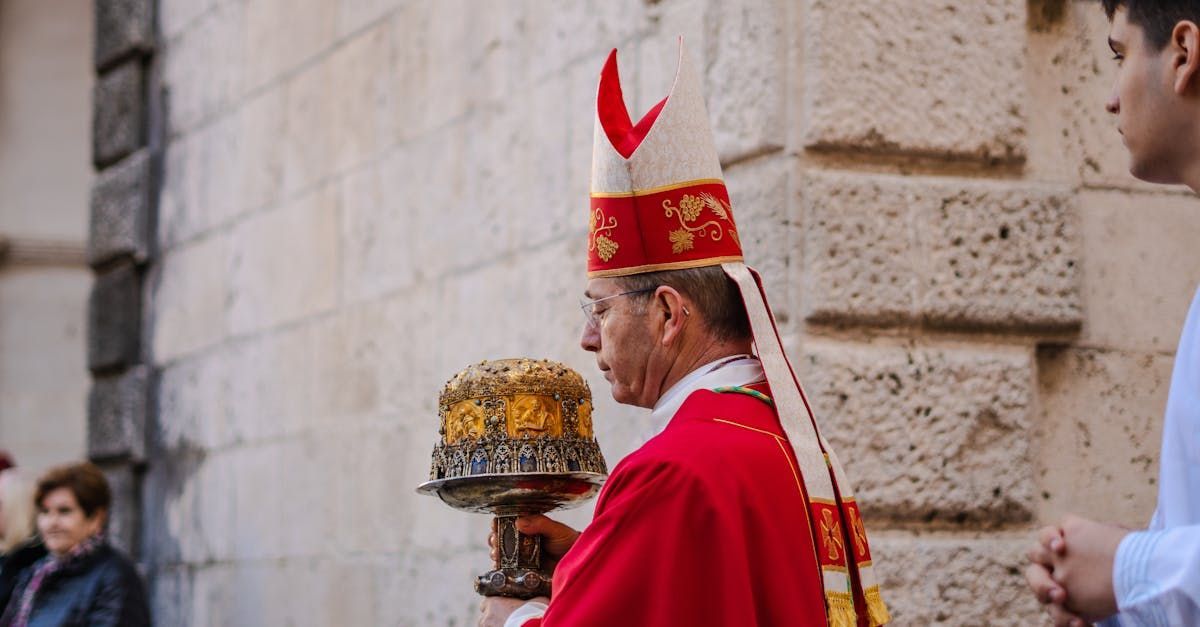La humildad en oración
XXX Domingo de Tiempo Ordinario
Una buena práctica para prepararse para la Misa dominical es leer las lecturas, o al menos el Evangelio, antes de ir a Misa. En el Tiempo Ordinario, sin embargo, el Evangelio cada semana es más o menos una lectura continua de uno de los primeros tres evangelios. Este año estamos en el Ciclo C del leccionario, lo que significa que hemos estado escuchando el Evangelio de San Lucas proclamado cada domingo. La Iglesia ha designado lecturas del Evangelio de Lucas cada domingo que están más o menos en orden desde el comienzo del Evangelio de Lucas hasta el final antes de la narración de la Pasión. Sin embargo, no escuchamos todo del Evangelio de Lucas durante el Tiempo Ordinario. Nuestro leccionario omite de vez en cuando ciertos versículos y porciones que son narrativas o no necesarias para la lectura del domingo.
Al escuchar atentamente la lectura del Evangelio cada domingo, obtenemos una perspectiva del Evangelio. Sin embargo, me ha resultado útil en mi propia vida de oración leer el Evangelio no solo del próximo domingo, sino también el Evangelio del domingo anterior y el Evangelio del domingo siguiente. Y leerlo de una Biblia para que no podamos saltarnos ningún versículo o pasaje. Si hacemos esto con el Evangelio de hoy, nos ayuda a comprenderlo mejor como parte de una enseñanza mayor sobre la oración cristiana. La semana pasada, Cristo enseñó a sus discípulos cómo orar en medio del sufrimiento y la maldad. Esta semana enseña la humildad que debemos tener cuando nos acercamos a él en oración. La próxima semana, va más allá y usa la figura de Zaqueo para mostrar a las multitudes cómo deben luchar contra los obstáculos que nos impiden acercarnos a Cristo. En conjunto, el enfoque de leer el Evangelio de la semana pasada, el de esta semana y el de la próxima semana es una forma esclarecedora de abrazar la totalidad de lo que Cristo quiere enseñarnos acerca de la oración. El mes pasado, fue una larga lección sobre el discipulado. Hace dos meses, hubo tres semanas de enseñanza sobre mayordomía. Entonces, si se van de aquí hoy con algo, espero que sea el desafío de leer las Escrituras y prepararse para la misa dominical de esta manera. Le llevará diez minutos a la semana.
La parábola que escuchamos proclamada hoy yuxtapone a dos personas en oración. Un hombre anuncia en voz alta cuánto ha hecho por Dios y cómo ha sido fiel a sus deberes religiosos. El otro hombre simplemente declara ante Dios lo indigno que es. A todos nos gustaría pensar que somos el segundo hombre. Pero, por desgracia, puede pasar muchas veces que no nos demos cuenta de que somos más como el primero.
Una mañana entré a mi iglesia parroquial temprano para abrir las puertas y decir mis oraciones matutinas. En la pila bautismal de la nave había una pila de papeles. Se titulaban Novena de San Judas. Debajo del título, había instrucciones: «Recite esta novena seis veces al día durante nueve días. Deje nueve copias en la iglesia cada día y se garantiza que su oración será respondida. Nadie nunca ha sabido que esto fallará». En toda mi vida, ¿cómo nunca he oído hablar de esto? ¡Todo lo que tengo que hacer es decir estas palabras y copiar estas oraciones durante nueve días! Debí haber estado haciendo esto desde mi niñez, porque hay muchas oraciones mías a las que Dios ha dicho que no. ¿Todos ustedes saben lo que hice? Recogí esas oraciones. Salí de la iglesia. Los tiré a la basura. Porque eso no es oración cristiana.
Incluso si reconocemos lo absurdo de esta noción poco ortodoxa de oración de pagar para jugar, podemos caer en dudas sobre nuestro método de oración. Cuando algo en la vida sale mal o la vida se vuelve difícil, decimos, solo necesito orar mejor. Necesito orar más. Pero esa no es necesariamente la solución. Un estudiante vino a mí una vez en la escuela secundaria donde soy capellán. Sufría de una ansiedad paralizante por sus estudios, deportes y responsabilidades en el hogar. Cuando me reuní con los padres, que eran católicos muy devotos, discutimos juntos algunos recursos de salud mental. El papá me detuvo y simplemente dijo: «Ella solo necesita pasar más tiempo en oración». Una vez más, esta no es la noción correcta de oración. Cristo nunca dijo que la oración resolverá todos nuestros problemas o arreglará mágicamente las situaciones difíciles. No significa que no debamos confiar nuestras dificultades a Cristo. Simplemente quiero decir que no podemos esperar que Dios agite una varita mágica y haga la vida más fácil. De hecho, esto es de lo que se trató el Evangelio de la semana pasada cuando Cristo enseñó a sus discípulos a orar mientras soportan el mal.
Bueno, entonces, ¿cuál es el punto de esta parábola? Cristo nos está mostrando lo que significa la verdadera humildad. En cuanto a la palabra humildad, proviene de la palabra latina que significa suciedad. Ser humilde es bajarse al suelo, ponerse en la tierra. Prácticamente, la humildad se practica cubriendo lo que tiene dignidad. Vemos esto en la liturgia. El cáliz del sacrificio se cubre en la Misa hasta que se descubre para su uso durante la liturgia de la Eucaristía. Las manos del sacerdote están cubiertas por el velo humeral mientras imparte la Bendición del Santísimo Sacramento porque no son sus sagradas manos ungidas las que bendicen como otras veces, sino que es Cristo quien bendice a través de la Eucaristía. La modestia es una parte integral de la humildad por la cual reconocemos la dignidad y la naturaleza sagrada de nuestros cuerpos. La modestia es la virtud por la cual velamos lo que es sagrado y sólo nos revelamos dentro de los límites del sagrado matrimonio.
Espiritualmente, la humildad se practica reconociendo que ambos dependemos de Dios para todo y, al mismo tiempo, no merecemos nada de él. Pensemos en eso por un momento. Dependemos de Dios para todo. No merecemos nada de Dios. Este tipo de humildad es necesario para crecer en el verdadero amor de Dios. La falta de humildad nos lleva a tratar a Dios como un abuelo benévolo que esperamos que nos adore. En cambio, un verdadero corazón humilde se vuelve en adoración a Dios. Reconoce que Dios es dios y nosotros no. La humildad nos permite recibir de Dios lo que Él quiere. Si el tiempo es bueno o malo, la vida fácil o difícil, las relaciones solidarias o en crisis, la vida familiar ordenada o loca.
En la oración, Dios no nos pide que nos justifiquemos. Él no quiere una lista de todas las cosas justas que hemos hecho. No quiere que hagamos tratos o prometamos cosas que él no necesita. La humildad es el reconocimiento de que Dios desea una cosa de nosotros. El Padre desea nuestro completo abandono a su misericordia. Cómo sabemos esto? Porque nos lo ha mostrado en su Hijo.
Mira a los israelitas. Durante milenios le pidieron todo tipo de cosas a Dios. Querían la libertad del faraón. Querían comida y agua en el desierto. Querían un lugar al que llamar hogar. Querían una nación poderosa. Querían un rey. Querían un lugar de culto. Al final, después de toda la historia del Antiguo Testamento, ¿qué les dio Dios? Su hijo. El Hijo se abandonó, se humilló, se arriesgó para revelar el amor del Padre. Y todo lo que nos pide es que nos entreguemos enteramente a él. Si Dios pudo humillarse por nosotros, debemos encontrar en nuestro corazón lo que nos impide abandonarnos humildemente de nuevo en sus manos.
La humildad es reconocer que dependemos de Dios para todo y, al mismo tiempo, no merecemos nada de Dios. En este Santo Sacrificio de la Misa, el Hijo se humilla de nuevo en medio de nosotros no como lo hizo en un pesebre, sino en el altar en lo que parece ser pan y vino. Él nos invita de nuevo a ofrecernos de nuevo a él. Él no pide nuestras promesas. Él no pide nuestras billeteras. Dios, sin embargo, pide nuestras vidas. Seríamos tontos si le ofreciéramos algo menos en el mismo momento en que él nos ofrece su propio ser en esta misa.
Pastor's Ponderings












